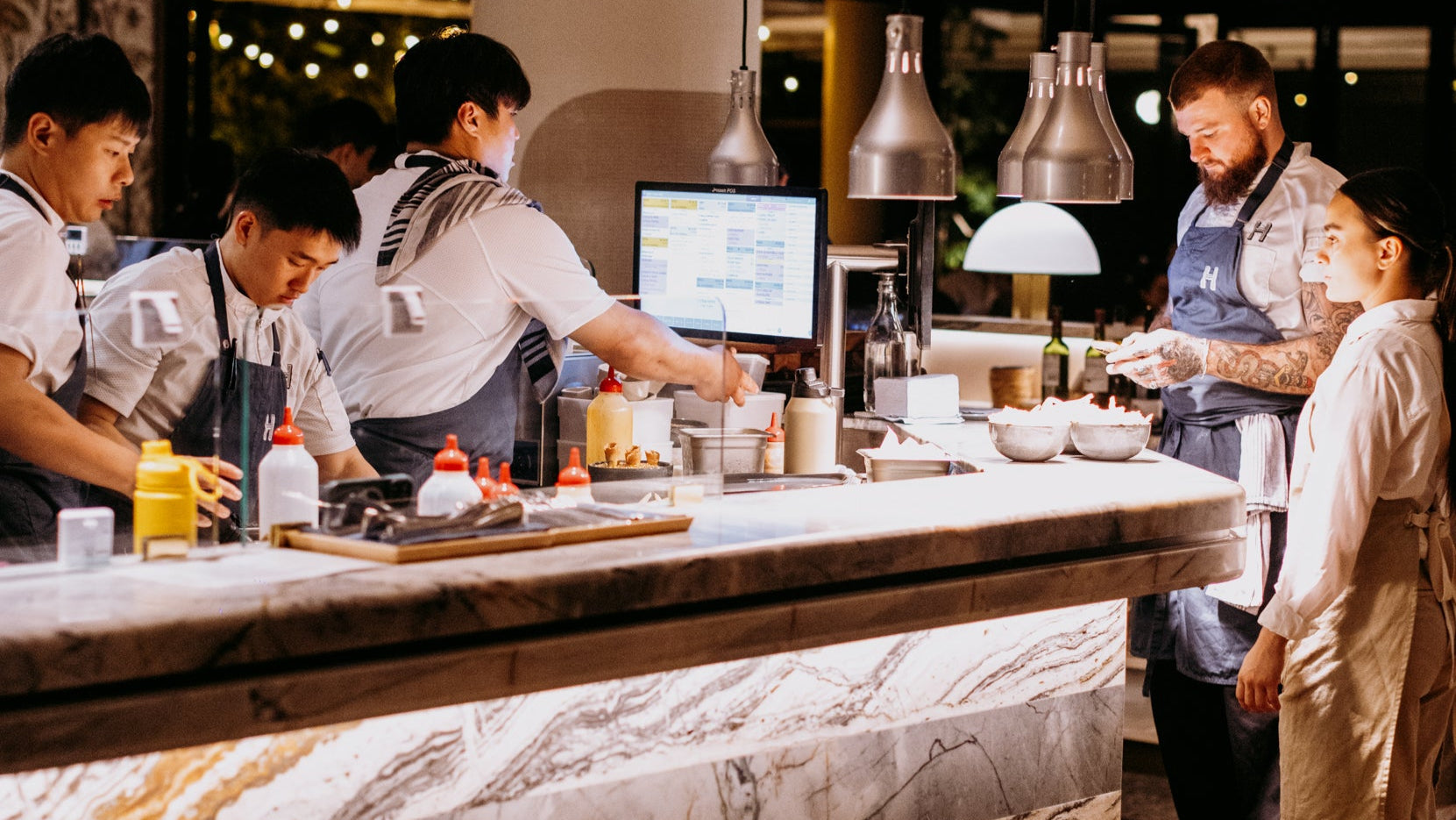The modern-day chef has a lot on their plate. The expectations of the role have grown exponentially over the last several decades. Chefs have become pillars of the community, celebrated in print and on-screen as entertainers and educators. The chef’s reach extends much further than the kitchen.
There are still certain rules that a chef will live by. These commandments apply beyond working in a kitchen as well, helping to maintain the edge and balance that a professional chef needs to juggle their multiple tasks.
These rules, these commandments, help maintain the best possible environment for growth and success. A well-balanced kitchen is a very enjoyable place to work. The best chefs live by these rules in and out of the kitchen, searching for perfection in every aspect of their lives.
1. Stay Sharp
The two most essential tools of the chef are a sharp knife and an even sharper mind. The chef’s knife needs a well-honed blade to produce clean cut mise en place. The mind of a chef should be sharp and clear to take on the day’s work, all the while thinking ahead to plan prep lists, grocery orders, the week's special events.
2. Stay Organised
Organisation is key to the controlled chaos of the high energy kitchen. From the mise en place on the line, the smallwares hanging from the walls, and the chef’s desk full of invoices and menu plans. Without organisation throughout, the chaos takes over.
3. Stay Focused
Chefs oversee the entire operation of the kitchen as well as coordinating the orchestration of service from the kitchen to the dining room. That means keeping tabs on all employees all the while completing their job duties at the same time. Extreme focus is needed to keep the big picture in sight without losing the grasp on the immediate needs of service.
4. Stay Safe
The professional kitchen is a dangerous place to work. Hot fry oil and simmering stocks, open flames of the chargrill, sharp blades and slippery floors; the chef must ensure that the safety of the kitchen is maintained well and that the staff can stay out of harm’s way. Communication is the key to safety.
5. Stay Educated
A great chef’s education never ends. One of the most beautiful aspects of working with food is that there is no end to the vast amount of information to be gained from studying classic cuisines from cultures worldwide. Techniques and flavours are nearly endless, giving way to the ability to innovate and find a new flavour combination that tells a new story unique to the chef’s perception. Education and experience give way to innovation.
6. Be Respectful
Respect is a currency in the professional kitchen. Earn it through exemplary quality work and long hours of toiling away without complaint. The chef earns respect through the quality of leadership. In the heat of service, it can be hard to maintain a level head when mistakes are made.
Offering respectful feedback to the staff is essential to maintaining the best possible morale in the kitchen. A chef that is mindful of his past mentors and pays homage and respect to their teachings by continuing the lessons learned will be able to provide a more enriching experience to young cooks that want to follow the same path.
Respect the language of the kitchen and the processes preparation.
7. Source Responsibly
Sourcing ingredient is much more complex than one would imagine. Chefs that take into account sustainable practices in growing and raising of vegetables and livestock are making choices to lower the carbon footprint of their kitchen. A chef that buys local goods from the surrounding community provides an economic impact to the producers in the area. Sourcing the best ingredients can be difficult sometimes, but a great chef knows how to track down the best products that are in season and will usually make menu changes often to reflect the bounty of the changing world around them. Build relationships with producers and purveyors that prove fruitful for years to come.
8. Be Frugal
Chefs are just as much accountants as they are cooks. A great restaurant can fail even when service and food are impeccable if the metrics of the profit loss statement aren’t properly managed. It is important for a chef to be mindful of the cost of labour and goods and be able to maintain production to minimise waste.
9. Be precise
Perfection is that mythical beast that all chefs strive for. Precision in seasoning and timing will transform pedestrian ingredients into masterful dishes. A few degrees over the mark with some proteins will render them inedible. A chef’s technique is measured in precision.
10. Be honest
Honesty and accountability are necessary for the kitchen. Mistakes are going to happen. Being able to own them is a learned trait. Sometimes the best lessons are learned through disappointment.
A chef that is honest to themselves and their staff will find every day more fulfilling, and the menus will be more reflective of the chef’s true self.
The professional kitchen is a microcosm of the outside world. Cooks, bussers, servers and chefs from many different cultural backgrounds, all with individual worldviews, working together to provide the best guest experience day in, day out.
Over to you, do you agree? What are your kitchen's unwritten rules?





